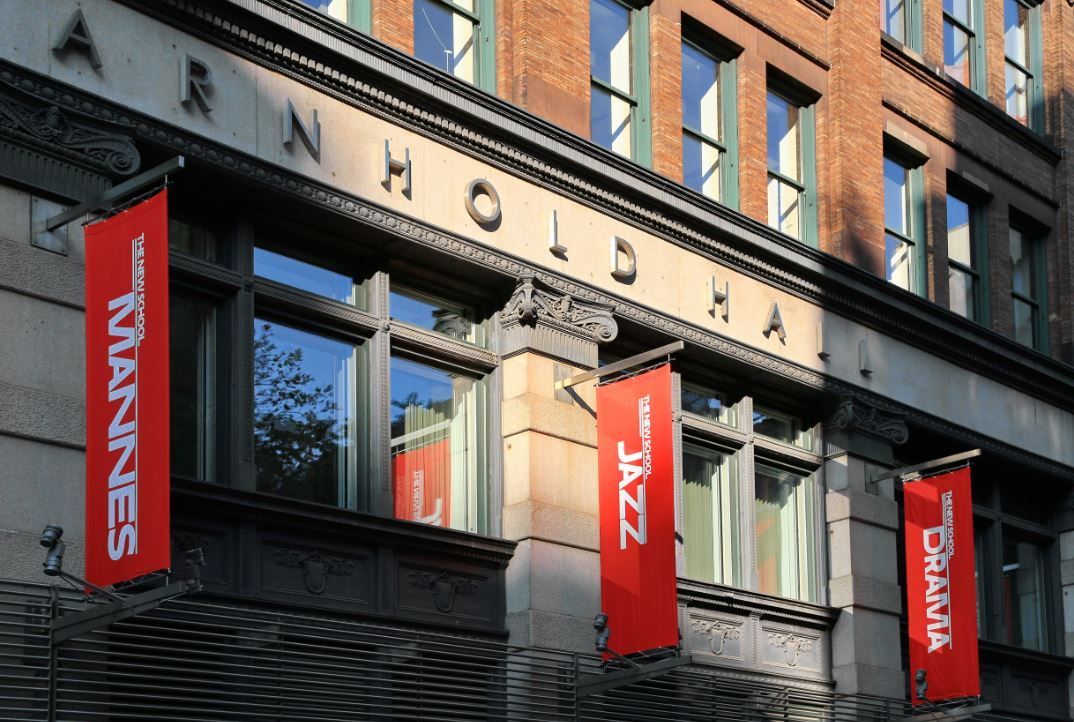
Mannes School of Music
The Mannes School of Music (/ˈmænɪs/), originally called the David Mannes Music School and later the Mannes Music School, Mannes College of Music, the Chatham Square Music School, and Mannes College: The New School for Music, is a music conservatory in The New School, a private research university in New York City. In the fall of 2015, Mannes moved from its previous location on Manhattan's Upper West Side to join the rest of the New School campus in Arnhold Hall at 55 W. 13th Street.[2]
Two academic divisions constitute the conservatory:[1]
The Techniques of Music program is the foundation for academic musical study in the two divisions at Mannes, encompassing the range of elementary to advanced music theory and aural skills and analysis classes.
Music theory was taught at Mannes from its inception, with David Mannes hiring important figures such as Ernest Bloch and Rosario Scalero to teach theory and composition. In 1931 Mannes hired Hans Weisse, a student of Austrian music theorist Heinrich Schenker.[4] Over the following nine years, Weisse promoted not just the study of Schenkerian analysis but also the incorporation of it into the musical life of the school, including performance and composition. Schenker's publication Five Graphic Music Analyses (Fünf Urlinie-Tafeln) was published jointly by Mannes and Universal Edition in 1932.[5]
In 1940, Weisse was replaced by Felix Salzer, who had also been a student of Schenker. Mannes continued to build on Weisse's foundation by reorganizing the theory program into the Techniques of Music Department. Salzer's purpose was and to integrate the school's approach to musicianship, theory, and performance, based on Schenker's focus on the role of theory in tonal music. Salzer was later joined on the faculty by his own student, Carl Schachter.[6] Subsequently, Schacter's own students continued and strengthened the department in this tradition.
In the 2020s, Mannes' has revised and expanded its program. The curriculum added courses in music technology, improvisation ensemble, teaching artistry, arts journalism, film music composition, and creative entrepreneurship.[7] The school has further enhanced its commitment to contemporary music beyond the tonal-based, eurocentric approach of Schenker. The Mannes of today includes a number of programs in partnership with its sister conservatory, School of Jazz.[8]